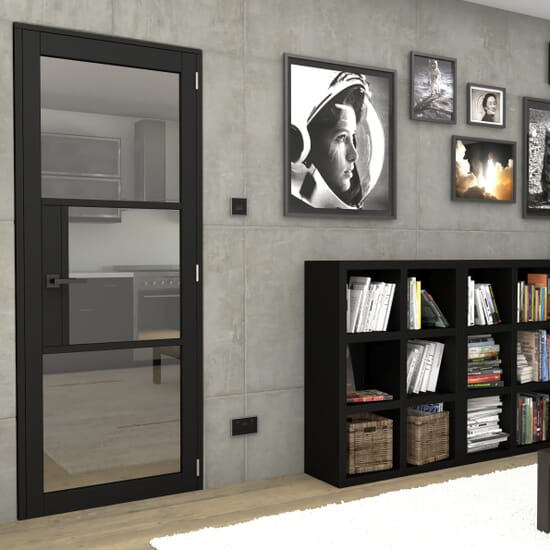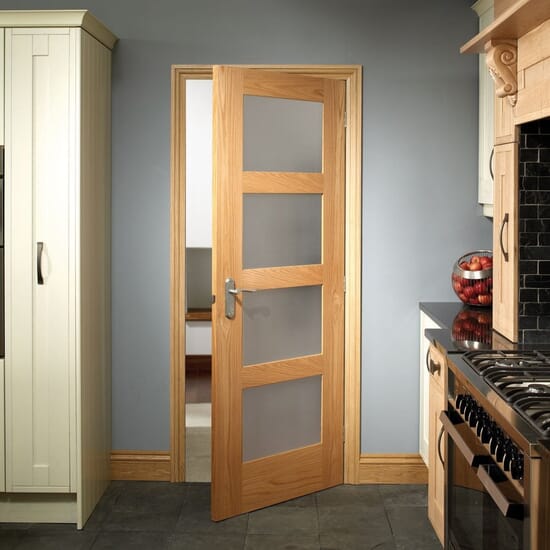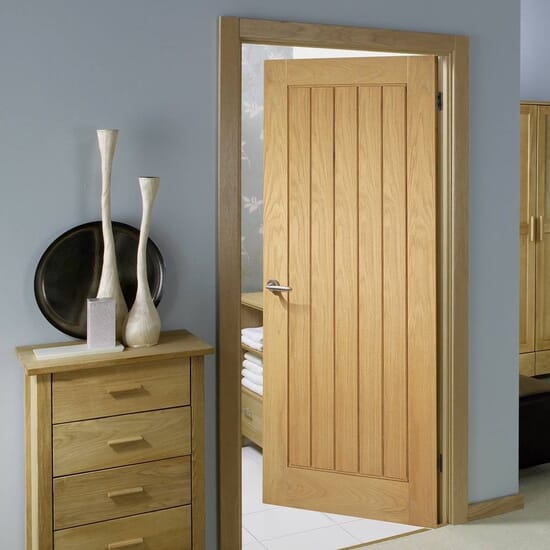Lubrication
Of course, a door that doesn’t open and close smoothly is going to prove annoying in the long run. What’s more, it’ll likely damage itself as its moving parts are forced to grind against one another. In order to combat this, we would recommend you check all moving parts every six months or so. Apply a light coating of WD-40, or some similar oil, and then move the mechanism to work it in. This will not only ensure that the door works smoothly; it’ll also help to protect the mechanism against corrosion, and thereby extend the lifespan of the door. As your doors are internal corrosion shouldn’t prove too much of a bother but if you like taking precuations, a little oil will ensure everything ticks along nicely.
Cleaning Internal French Doors
The frequency of your maintenance sessions will vary according to the material the doors are made from. Every sort of door will benefit from the occasional wipe down – provided that you don’t use too much water, and allow them to dry thoroughly afterwards. Avoid the use of chemical cleaners on plastic doors however, and only use them on aluminium doors where the coating has begun to oxidise.
If you have wooden doors, you may want to touch them up with a fresh coat of varnish every now and again to keep them looking in pristine condition. If the paint is cracked or peeling, rather than applying a coat on top you may need to strip the paint from the entire door before adding your new coat. Sand the affected area gently, clean away any excess sawdust and re-finish the door. Be sure to cover up the glass with masking tape in order to prevent your choice of finish from going onto the glass. If the paint is fine, then all that may be required is a little bit of touching up.
Bear in mind that ‘engineered’ doors come with only a very thin layer of timber on the top – and once it’s been worn away, the door will be effectively ruined. Be very cautious with your sandpapering – you might easily rub all the way through to the core of the door, particularly if this isn’t the first time you’re sanding it.
uPVC and aluminium doors require a different approach. Suffice to say, attempting to sand either will end in disaster. Painting, too, is inadvisable – uPVC doors are not designed to be painted at all, while aluminium ones are designed to be powder-coated at factory level. Since most internal French doors are made either from solid or engineered timber, this isn’t something most owners will need to worry about. If you do however have doors made from these materials we recommend you simple clean with a damp cloth.
How to dry internal doors
Wood, if exposed to excessive amounts of moisture, is prone to warping and rotting. The fibres of the wood will absorb nearby water, expanding as they do so, and then contract as they dry. Even if this warping effect is minor, it can, over the years, result in a significantly shortened lifespan for the door. As such, it’s important not to use too much water when wiping down the surface of the wood. In winter, when water stays around for longer, this can be even more disastrous. To dry a door, use a dry, lint-free cloth to mop up any excess water. In winter if you decide to wash your doors, it may be worth having the heating on for a couple of hours after also.
If you’re cleaning a metal or plastic door, this concern isn’t so pressing – as there’s no warping or soaking-in to worry about. Still wiping after with a dry cloth wouldn’t do them any harm.
Avoiding smear marks when cleaning glass doors
There are many different ways of cleaning glass. Acidic solutions, like vinegar and lemon juice, combined with the slightly-abrasive action of a scrunched up cloth, will work wonders. Of course, don’t use anything more abrasive than that – wire wool will assuredly ruin the glass. If you’d prefer, you can buy cleaning formulas which are specifically concocted with glass in mind – combine them with a cloth and give the glass a quick rub-down every week or so. If you use too much water and allow the suds to dry on the glass, you’ll end up with an unsightly smear-mark. This, naturally, should be avoided.
Interior French doors often featuire strong glazed glass that doesn’t easily break or shatter. Still should something happen to the glass in your internal doors you should be able to get the panes replaced rather than having to purchase new doors. Always seek professional help when replacing the glass however as this can be quite tricky a job.
In Summary
As well as cleaning your internal French doors, we also have a handy guide to choose the right internal french door for your home.
View our full range of internal French doors to explore all of our styles and if you have questions about any of our products, our team is here to help so get in touch.







